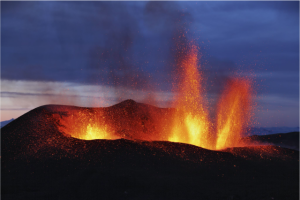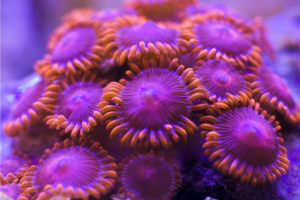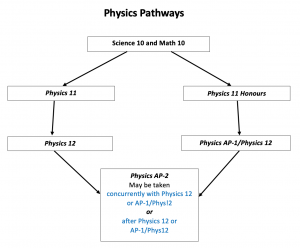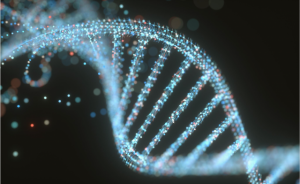Questions may be directed to Science Department Head Adam Taylor at adam.taylor@burnabyschools.ca

Earth Science 11
Course Code: MESC-11
Pre-requisite: passing mark in Science 10
Earth Science 11 is a survey course that, through lab and field experiences, explores the Earth and its environment in space. Earth science topics include rocks and minerals, plate tectonics, volcanoes, earthquakes, ocean and weather sciences, and oil, gas and mineral exploration. Space science topics include planets and the solar system, stars, galaxies, and deep space objects such as quasars and black holes.
 Science for Citizens 11
Science for Citizens 11
Course code:
Prerequisite: passing mark in Science 10
Science for Citizens is designed to investigate 3 big ideas:
– how can scientific knowledge inform our decision making and our daily lives?
– how are scientific processes involved in a variety of jobs ?
– how can scientific understanding help us respond to changes locally and globally?
Students will investigate a variety of topics through hands on experiments, documentaries and projects. Students will apply the scientific method to consider how experimental design, variables and sources of error can influence the results of investigations. Students will evaluate the effects of scientific discoveries and technologies on their daily lives and look at career choices related to science. Students will explore the local environment and design action projects from an environmental and sustainability lens.
Note: Science for Citizens is accepted as a grade 11 requirement for some university applications but not all. Currently it is accepted by SFU however, is not accepted by UBC.
 Environmental Science 11 Honours
Environmental Science 11 Honours
Course Code: MEVSC11H
Recommendation: Students should have a strong standing Science 10, plus their teacher’s recommendation. Students should also have good work habits in all other courses.
The four big ideas for this course are diversity of ecosystems, changing ecosystems, sustainability of ecosystems, and stewardship and restoration. This is considered a pre-AP course that aligns with the first half of the Environmental Science 12AP content. Students who complete Environmental Science 11 Honours may choose to enroll in Environmental Science 12AP the following year.
 Life Sciences 11
Life Sciences 11
Course code: MLFSC11
Recommendation: Students should have an “C+” standing or better in Science 10.
The key concepts covered in this course examine the interactions required for life at a molecular and cellular level, evolution, and how living things are classified based on common characteristics. Students will examine trends in complexity among various life forms as well as the relationships between organisms using an ecological, evolutionary and Indigenous lens.
This course involves regular microscope work and numerous dissections.
Students are expected to:
- Read and process information from a variety of text that provide opportunities for students to question, predict, plan, conduct, process, and analyze data.
- The laboratory skills and themes studied this year are fundamental preparation for Anatomy and Physiology 12 and future post-secondary studies in Biology.
Life Sciences 11 Honours
Course Code: MBI–11H
Recommendation: Students should have an “A” standing or better in Science 10, plus their teacher’s recommendation. Student’s should also have good work habits in all other courses.
Life Sciences 11 Honours is an in-depth, intensive course that moves at a faster paced than regular Life Sciences 11. This course the covers the first half of the AP Biology 12 curriculum and should be considered the first year of a two-year program that leads to completion of Advanced Placement Biology 12. Students who want to take AP Biology 12 should take Life Sciences 11 Honours. This course will cover topics from Life Sciences 11, Anatomy & Physiology 12, as well as AP Biology 12 with an emphasis on the developing the AP Science practices skills.
Topics covered over the two-year program include the chemistry of life, cell structure & function, cellular energetics, cell communication and cell cycle, heredity, gene expression & regulation, natural selection & ecology.
Students will:
- Design experiments and procedures to test a prediction or theory
- Collect & analyze data
- Use mathematics appropriately to interpret data and to draw conclusions
- Engage in scientific questioning to extend thinking or to guide investigations
- Work with scientific explanations and theories.
- Connect and relate knowledge across various scales, concepts and representations
 Chemistry 11
Chemistry 11
Course Code: MCH–11
Recommendation: Students should have a standing of “C+” or better in Science 10 and Foundation and Pre-Calculus Math 10 or Math 10 Enriched.
Chemistry 11 is a laboratory course that examines the topics of atoms and molecules as the building blocks of matter, organic chemistry, quantitative measurement, and solutions. A focus will be on students learning measurement and lab techniques and performing quantitative calculations.
Students are expected to:
- Have good math skills including unit conversion and algebra
- Operate a scientific calculator (exponents, order of operations, scientific notation)
- Solve word problems systematically
A grade of C+ or higher in Chemistry 11 is recommended for continuation on to Chemistry 12.’
Chemistry 11 Honours
Course Code: MCH–11H
Recommendation: Students should have an “A” or better in Science 10, plus their teacher’s recommendation. Student’s should also have good work habits in all other courses.
This course should be considered the first year of a two-year program that leads to the completion of Advanced Placement Chemistry 12. This course deals with the topics of Chemistry 11 in greater depth and also includes some topics from AP Chemistry 12. The presentation of material is not linear; therefore, it is required that students enroll for both years of the program (Chemistry 11 Honours followed the next year by Chemistry 12 AP).
Physics Pathways


Physics 11
Course Code: MPH–11
Recommendation: Students should have a standing of “C+” or better in Science 10
Prerequisite: completion of Foundations and Pre-Calculus Math 10 with a “B” standing.
Physics 11 is an introductory course which explores the nature and scope of physics through inquiry and problem-solving, as well as the place of physics in our lives and its applications. Topics include: kinematics; dynamics; simple machines; energy (mechanical and heat); the transmission of energy (mechanical waves); and, DC circuits.
Physics 11 Honours Course leads into Physics 12 Honours/AP-1
Please see Physics Pathways Documents for detailed info- Physics Pathways flow chart (1)
Physics Course Pathways updated 2021
Course Code:
Prerequisites: Students should have an “A” standing or better in Science 10, plus their teacher’s recommendation. Students should also have good work habits in all other courses. Students should have completed Foundations and Pre-Calculus Math 10 with an “A” standing.
Physics 11 Honours is the first part of a two year program. It is required for students planning to take Physics 12 Honours/Advanced Placement Physics 1 (AP-1) the following year.
Physics 11 Honours includes all required topics and concepts of BC’s Physics 11 course, approached at a higher level of difficulty in preparation for Physics 12H/AP-1. Physics 11 Honours covers 2 dimensional kinematics, Newtonian mechanics, and momentum; advanced applications of work, energy, power, mechanical waves and sound; electrostatics, and DC electric circuits.
 Anatomy & Physiology 12
Anatomy & Physiology 12
Course Code: MATPH12
Recommendation: Students should have a standing of “C+” or better in Life Sciences 11 and a standing “C+” or better in Chemistry. Strong work habits are required.
A significant portion of this course is dedicated to understanding the chemistry of the molecules that make up life and the biochemistry that regulates processes at a cellular and molecular level. DNA replication, protein synthesis and gene technology are also examined. The major organ systems are explored and connections are made to how homeostasis is maintained.
Students are expected:
- Collect and analyze data
- Engage in scientific questioning to extend thinking or to guide investigation
- Connect and related knowledge across various scales, concepts & representations
- Build upon lab skills which were introduced in Life Sciences 11 to plan & conduct experiments independently
Biology 12 Advanced Placement
Course Code: ABIO-12
Recommendation: Students should have completed Life Sciences Honours in good standing with the teacher’s recommendation to continue into Bio 12 AP. Students should also have good work habits in all other courses.
AP Biology 12 is the second year in a two year program following the completion of Biology 11 Honours. This course provides students with equivalency of a first-year university biology course and students will write the Advance Placement Exam in May. AP Biology 12 is a valuable course for students who are strong academically and have a keen interest in the area of biology. AP Biology 12 covers topics with greater depth and at a faster pace than Anatomy and Physiology 12 and requires students to commit to effective regular study routines. Topics covered over the two-year program include the chemistry of life, cell structure & function, cellular energetics, cell communication and cell cycle, heredity, gene expression & regulation, natural selection & ecology.
Students are expected to:
- Design experiments and procedures to test a prediction or theory
- Collect, analyze and apply data
- Use mathematics appropriately to interpret data and to draw conclusions
- Engage in scientific questioning to extend thinking or to guide investigations
- Work with scientific explanations and theories.
- Connect and relate knowledge across various scales, concepts and representations
 Chemistry 12
Chemistry 12
Course Code: MCH-12
Recommendation: A grade of C+ or higher in Chemistry 11 is recommended for entry into Chemistry 12.
Students will build on the concepts learned in Chemistry 11 with emphasis on factors affecting reaction rates, reaction and solubility equilibrium, acids and bases and electrochemistry.
This course involves a higher level of application and critical thinking than Chemistry 11.
Students are expected to:
- Have good math skills
- Have completed Chemistry 11 at a highly competent level
- Apply significant figures, the mole concept and molarity in calculations
- Have good study habits and spend more time practicing problems
- Make connections between topics and apply their knowledge to new situations
Chemistry 12 Advanced Placement
Course Code: ACHE-12
Recommendation: Students should have completed Chemistry 11 Honours in good standing with the teacher’s recommendation to continue into Chem 12 AP. Students should also have good work habits in all other courses.
Chemistry 12 AP is a higher-level chemistry course equivalent to a first-year university. This course is the second year of a two-year program which covers provincial grade 11 and 12 topics, as well as first year university. The presentation of material is not linear; therefore, it is required that students enroll for both years of the program (Chemistry 11 Honours followed the next year by Chemistry 12 AP). Students will write the Advanced Placement Exam in May. Topics include reaction types, atomic and molecular structure, equilibrium, kinetics, quantum mechanics, and thermodynamics, to name only a few. Significant emphasis is placed on applications of concepts, problem solving and laboratory analysis.
Physics Pathways


Physics 12
Course Code: MPH–12
Recommendation: C+ or better in Physics 11 or Physics 11H, and Pre-Calculus Math 11.
Students build upon the concepts learned in Physics 11 with emphasis on mechanics in 2 dimensions, and electricity and magnetism. This course helps develop analytical, experimental and problem-solving skills. It also helps students appreciate the role and applications of physics in our technological and cultural development. The course covers kinematics and Newtonian mechanics in 2 dimensions; advanced applications of work, energy, and power; electricity and magnetism; and, special relativity.
AP Physics-1 / Physics 12
Prerequisites: Physics 11 Honours is required. Students should have taken or be concurrently taking pre-calculus or an equivalent math course.
Students can achieve credit for BC Physics 12 and Advanced Placement Physics-1 by taking this course.
Please see the Physics Pathway Documents Here For More Info about Pre-requisites and Physics AP-1 and Ap-2 Courses- Physics Pathways flow chart (1)
Physics Course Pathways updated 2021
Physics 12 Honours/Advanced Placement Physics 1 completes all required topics of BC’s Physics 12 course that were not covered in Physics 11 Honours. This includes uniform circular motion, static equilibrium (torque), electricity and magnetism, and special relativity. In addition to the BC Physics 11 and 12 curriculum topics, Physics AP-1 includes rotational kinematics and dynamics, elastic potential energy and spring systems, and simple harmonic motion.
Advanced Placement Physics AP-2
Course Code: APHH-12
Prerequisite: Students should have completed Physics 11 or Physics 11 Honours with an “A” standing.
Pre or Co-requisites: Physics 12H/AP-1 or Physics 12. Students should have taken or be concurrently taking pre-calculus or an equivalent math course.
Advanced Placement Physics 2 (AP-2) includes topics that are not in the BC Physics 11/12 curriculum, enriching and broadening student experience of Physics. Topics include: electromagnetic waves; geometric optics; physical optics; modern physics (e.g. wave-particle duality); atomic physics; nuclear physics; electricity and magnetism; DC circuits including an introduction to capacitors; fluid dynamics; temperature and heat; and, thermodynamics.
Advanced Placement Physics and Post-Secondary Studies:
Students who choose to major in Science or Engineering at University must take a calculus based first year physics course. Thus, Physics AP-1 and AP-2 do not exempt Science and Engineering majors from taking first year Physics courses that are designed for those fields. Nonetheless, the breadth of the AP program provides students a strong foundation in physics theory, preparing students for first year University calculus based physics courses.
Students who do not choose to major in Science or Engineering may be able use their Physics AP-1 plus AP-2 courses for credits as an elective first year course. Physics AP-1 alone is typically not deemed sufficient for University course credit, but AP-1 plus AP-2 may be accepted, depending on the policies of the specific College or University.
Questions regarding course offerings and course selection may be directed to Science Dept Head Adam Taylor at adam.taylor@burnabyschools.ca